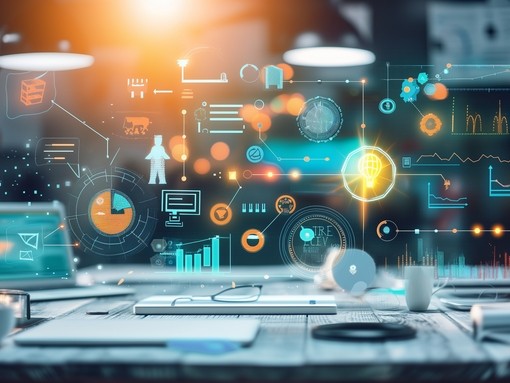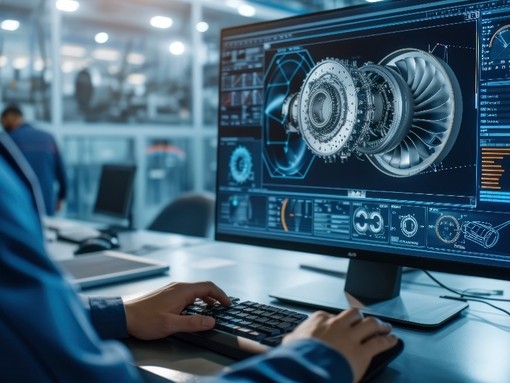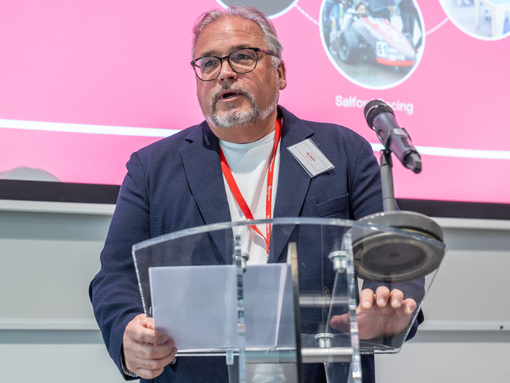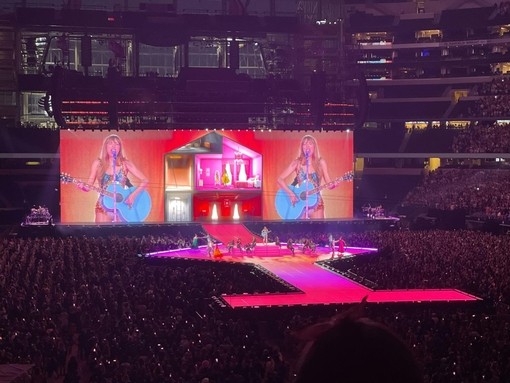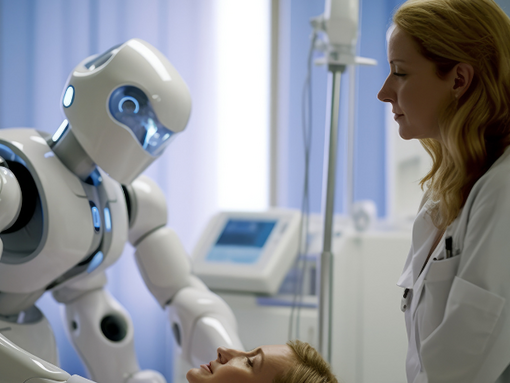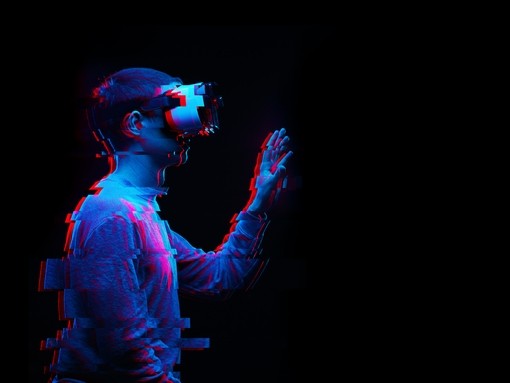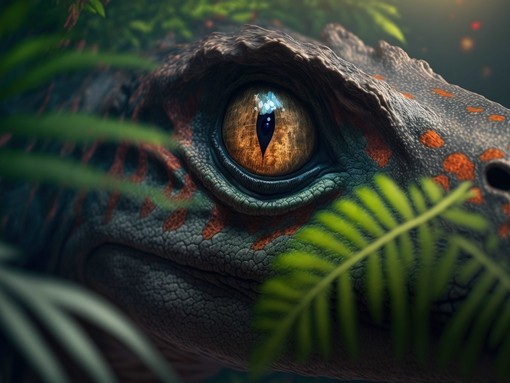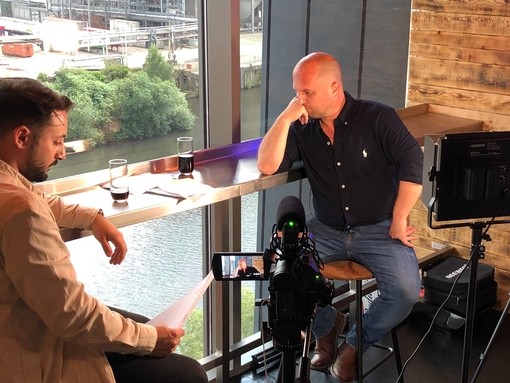
Is artificial intelligence a threat to the music business?
Some might say Oasis were just a Beatles tribute act. Did artificial intelligence just prove it? And is the technology an existential threat to the music business itself? We look at all this and more.

The rise of artificial intelligence (AI) has been a revolutionary development in the history of computing. AI refers to the ability of machines to mimic human intelligence and carry out tasks that require human-like cognitive abilities such as problem-solving, decision-making, and pattern recognition. The concept of AI dates back to the 1950s when computer scientists began to explore the possibility of creating machines that could think and reason like humans. One of the main drivers of the rise of AI has been the availability of vast amounts of data, which has enabled machine learning algorithms to become more accurate and effective, as well as the increasing availability of computational power.
One of the most popular pieces of AI to launch is ChatGPT, an AI-based language model developed by OpenAI that uses the GPT (Generative Pre-trained Transformer) architecture, specifically the GPT-3.5 model, to generate human-like responses to natural language inputs. ChatGPT is trained on a vast corpus of text data, allowing it to understand and respond to a wide range of topics and conversations in a natural and fluent manner. ChatGPT represents the cutting edge of natural language processing technology and is at the forefront of research in AI language models.
So much so, that everything above this line in the article was actually written in seconds using Chat GPT itself. It can be difficult to pick up on, but from this point on, the real human writer is taking over…
So, what have we seen so far from artificial intelligence in music?
Artificial intelligence in music
Writing cohesive and engaging text is one challenge for artificial intelligence, but in recent times we’ve seen a sudden rise in artificial intelligence in music.
Last year, we wrote about how legendary film director Peter Jackson had harnessed the power of machine learning to clean up and enhance video and audio tapes from the Beatles’ Let It Be writing and recording sessions. This sophisticated technology not only allowed the visual portions of the tapes to be remastered into clean high definition, but there was also a unique audio utilisation. Likened to taking a baked cake and then splitting out just the whole egg, the technology allowed for multiple voices on a mono tape to be split, recognising each voice as a separate entity, giving producers the ability to remix them separately.
In 2023, this is set to be used by Sir Paul McCartney himself, as he uses AI technology to create what he terms ‘the final Beatles record’. Vocals from a 1978 demo by the late John Lennon have been separated from the instruments on the track and cleaned up, allowing it to be used in a fully realised song, reuniting history’s most celebrated songwriting duo one last time.
Unlike the examples below, nothing about the vocal is artificially created, rather extracted from a source and cleaned. But what about writing new music? Well AI has us covered there too, often in unnerving ways.
Ed Sheeran and artificial intelligence get it on
Artist Ed Sheeran has had an interesting experience with artificial intelligence in music, with it rearing its digital head at his recent copyright infringement trial. Accused of borrowing the harmonic progression, melodic and rhythmic elements of the seminal 1973 Marvin Gaye hit Let’s Get It On for his own 2014 hit Thinking Out Loud, Sheeran and the court were subjected to an AI-generated rendition of the soul classic by the plaintiff’s musicologist. Laughter reported broke out in the courtroom when the clumsy computer voice robotically strained through the song, with Sheeran himself stifling a grin. It was hardly a flawless, soulful rendition. The Yorkshire-born songwriter ultimately won his plagiarism case, with AI perhaps playing a role in demonstrating that when given a series of musical laws, similarities are bound to crop up through time.
Artificial intelligence lets us hear impossible cover songs
Despite the clunky version of Marvin Gaye used at Sheeran’s trial, artificial intelligence has proven itself capable of generating some phenomenally accurate cover versions that would otherwise be impossible.
Everyone has heard the tongue-in-cheek claim that Oasis were ‘the world’s most successful Beatles tribute band’, likening their catchy pop anthems to some of the Fab Four’s output. Thanks to artificial intelligence, we can now hear with creepy accuracy what it would have sounded like if some of the Manchester-based Britpop giants’ songs would have sounded if they’d been recorded and sung back in the 1960s by the most famous band in the world:
For example, this version of 1995’s Some Might Say combines human-played instruments with an AI simulation of the Beatles’ voices. Hear John Lennon sing a song that was written 15 years after his death:

Likewise with this hauntingly accurate version of Don’t Look Back in Anger by the late George Harrison:

It’s fair to say that if you played these AI-generated covers to someone who hadn’t ever heard the Oasis songs (tough find, we’d imagine) they’d almost certainly be fooled into thinking they’d unearthed archive Beatles material, such is the convincing nature of the fit. Those naysayers who claim that Oasis was just a Beatle’s tribute band might feel vindicated, but it’s important to remember that AI is just breaking down sounds into melodies and copying them, songs from very similar styles. It also didn’t write these songs, and for the time being there’s no substitute for the human songwriter.
The AI generated covers don’t stop with just these two bands either. Ever wondered what it would sound like to hear SpongeBob sing Radiohead? Or perhaps hear Barack Obama rap? Artificial intelligence has you covered.
Is artificial intelligence a threat to the music industry?
A major concern for music bosses is the rise of these artificially created vocal impersonations. With most of these AI versions not seeking permission from the original artists’ estate for the use of the vocal likeness, fears have been sparked over copyright claims and the ability for unconnected people to make money themselves off the likenesses, undermining the industry.
While Sir Paul McCartney is embracing the technology for good and bringing to life a lost demo, the same voice of John Lennon is being used to enable him to ‘say’ and sing things that he never did, prompting huge concerns.
Universal Music Group has labelled AI music ‘fraud’ and wants to see more widespread banning, going as far as to petition the larger music streamers such as Apple Music and Spotify to block AI platforms from using their songs to train the AI algorithms.
Artificial intelligence is not just a threat to the music industry, it is also transforming it in significant ways in terms of creation. On the one hand, AI is being used to create new music compositions, generate lyrics, and even produce entire albums without the need for human input. This has led some to worry that AI could eventually replace human musicians and composers, leading to a loss of jobs and creativity in the music industry.
However, it is important to note that AI-generated music is still in its early stages and has not yet reached the level of complexity and nuance of music created by humans. While AI can create impressive melodies and harmonies, it lacks the emotional depth and artistic vision that human musicians bring to their work. In addition, many people value the human connection and authenticity that comes with music created by real people and may not be interested in listening to music generated solely by machines. Not to mention the fact that playing an instrument is one of the most popular hobbies in the world, something enjoyed by millions of people every day. Would we want AI to take that away?
AI is being used in other areas of the music industry to enhance the creative process and improve the listener experience. For example, AI-powered algorithms are being used to analyse music data and help music producers and labels identify emerging trends and predict which songs will be popular. AI is also being used to personalize music recommendations for individual listeners based on their listening history and preferences, for example on Spotify’s Discover Weekly feature.
AI is opening up new possibilities for creativity and innovation in music production, restoration and generation, and is likely to continue to play an important role in shaping the future of the industry. Quite what that looks like for music bosses in terms of copyright, fake albums and other aspects remains to be seen.
Ever wanted to have a chat with Kurt Cobain or a jam with Jimi Hendrix? Thanks to artificial intelligence, you might be able to, and sooner than you might think…
Search our latest tech jobs here to become part of the revolution of artificial intelligence in music







